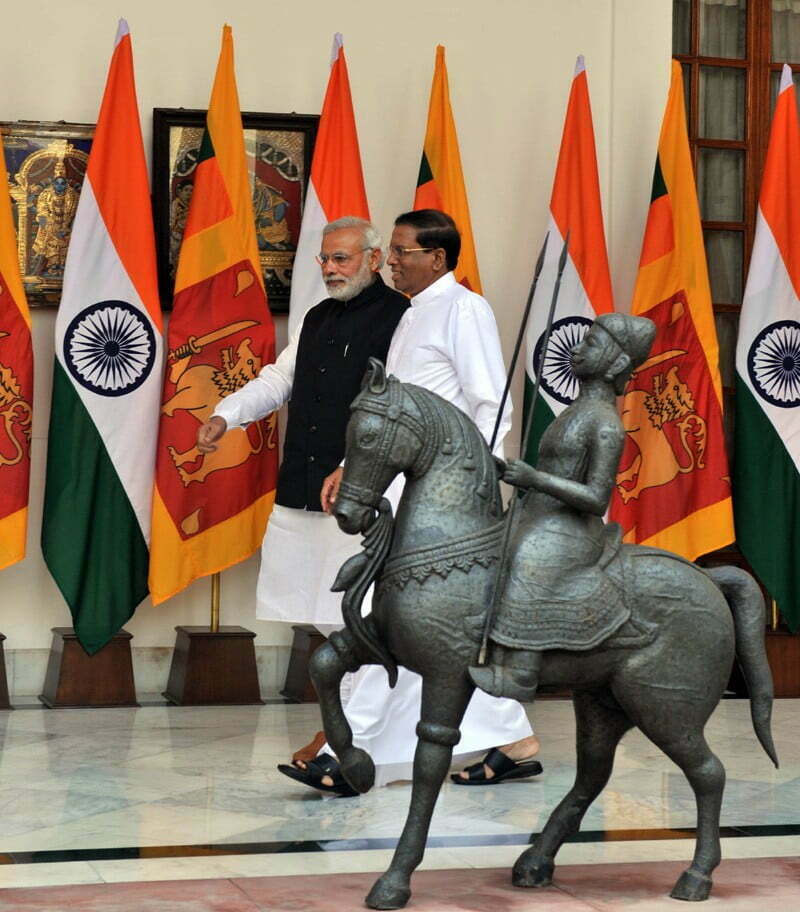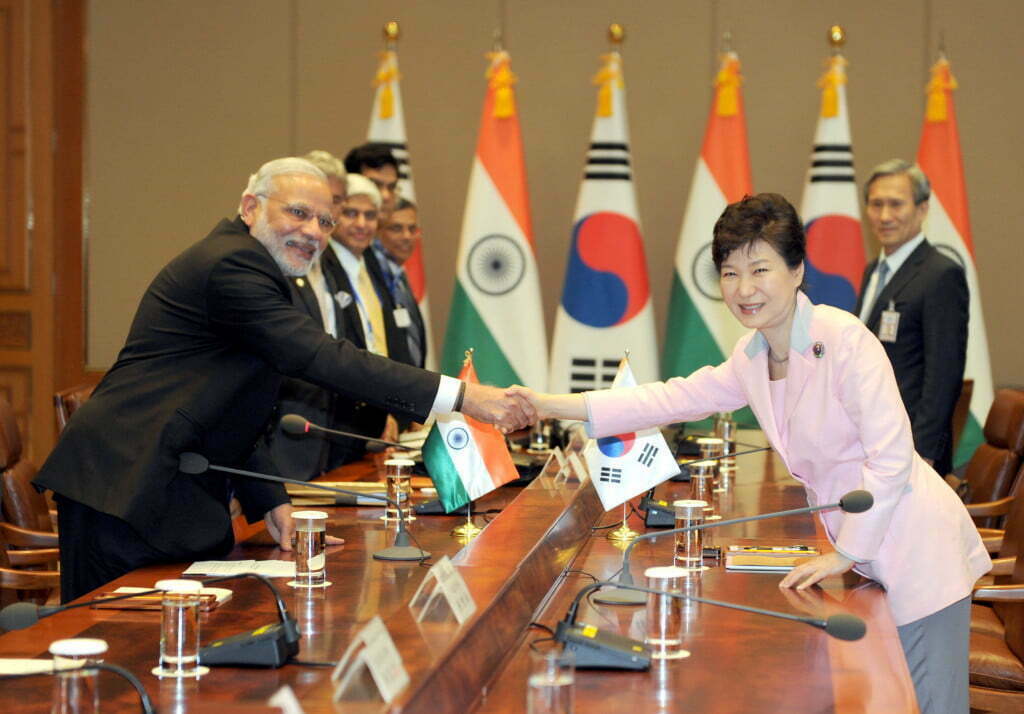
India and its 260 million strong middle-class has a potential of being a major market with NaMo is its driving force.
Narendra Modi’s elevation as the Prime Minister and his rightist economic reforms are an explicit declaration of Indian rightists tilt after six decades of failed leftist economic policies. Faith in him, generated hopes in the Western minds already reeling under a grave economic crisis for three years. They openly welcomed him when he visited them to woo their capital and their capitalists to come to India.
American President Barak Obama and NaMo are friends on first name basis. Chinese President Xi Jinping was at ease on an old swing at the Sabarmati Ashram with NaMo delivering lessons of the Gandhian philosophy to him. The chemistry between was not easy to explain —a lifelong committed Communist listening to discourses on Gandhian philosophy from a Sangh ideologist.

The Prime Minister of Japan escorted him personally to famous shrines in Japan. The Australian Prime Minister was overwhelmed by his presence in Australia. France, German and Canadian rulers, rolled out red carpets for him. The British Prime Minister David Cameron bombarded him with invites for an immediate visit. Cameron had perhaps hoped to garner the Asian votes by wooing NaMo before his parliamentary elections that had not held bright prospects as opinion polls suggested
Media in the West was busy building an image. The Time cover headline says ‘Modi Matters.’
Modi has not emerged as a politician who would settle disputes among nations; end the looming menace of nuclear wars or deals with increasing terrorism. He is one who would facilitate their entry into the market with super wealthy middle-class yearning to imitate a different lifestyle and thus hungry for white goods. He is seen as a man who can open the womb of Indian economy for money purses from outside to exploit. He did struggle no less for enticing potential investors to come to India with their capital, technology and their production mechanism. He promised skilled hands for production, eased procedures through one window to reduce gestation periods and predictable, steady policy framework. He addressed potential investors in every developed nation he visited with promises. His intention was to raise hopes at home also.

Eleven months passed but without a perceptible positive response to show his young admirers at home with signs of rapid growth pace potentials. No major player came forward with capital, technology and production units to write on his clean slate. Even industrialists at home began to express their disenchantment after a long wait for processes to change. They did not perceive the promised changes in the new governance. Indian media kept its eyes glued to only the Congress for its next move to prevent him from taking even a single step. Potential investors did not miss the building resistance to NaMo. He had dictated his terms for leading the party for the last polls. The mentors had no alternative but to yield to his terms without the risk of split or rather vertical division of the party. But now his mentors would not loosen their grip.
Most politicians are dipped deep in an old sauce of traditional politics and have been habituated to appease their electors with few crumbs at them. They could not relate to changes that NaMo intended to make everyone fight instead of depending on the government to fight their battles. He introduced ideas that would make lower classes participate in the development process rather than be dependent on it. Few of his schemes aimed at opening doors of the economic institutions to lower classes. Traditional minds perceived them to be his populist politics.
He sought a change of mentalities that slowed down growth pace but the lack of articulation to relate his ideas and efforts to make them readily comprehensible did not satisfy either classes or masses. He is not an inspiring teacher, and his learners were not ready to shake dust of conservative expectations from their mind to respond to his ideas. His endeavours to shift the base of the Indian economy from agriculture to industrialization met with even more fierce opposition.
Most opponents are harping on maintaining the family domination while those within are striving to retain power of the Sangh. The Congress vision is limited to restoring power of the Gandhi family. Advisers cannot see an alternative way of attacking NaMo for the slow pace of change rather than resisting him. Probably the Congress advisers desire to ensure the continuation of poverty of not only resources but also minds. Only poor depend on the dynastic rules in the modern and emancipated world. It is also helpful to the elements who desire to keep poor wedded to an old traditional religious set of social structure so that only upper class can continue to dominate.
In the year that is gone since NaMo took over, the Nagpur establishment blessed all programmes that reek of old concepts and are intended to make young marching back to the Golden Era in the past. The Congress talks of a golden era when the Gandhi family ruled. The split parts of the Janata Dal that dominate as state political units are in a dilemma. They want to come together, but most leaders find it difficult to overcome their personal ambitions.
The year was of great expectation and belied hopes because of the mismatch between what NaMo intends to do and others’ refusal to see his way. He could keep Xi Jinping engaged with his idea of implementing the Gandhian dream of Cleansed India but could not inspire Indians to follow him.

